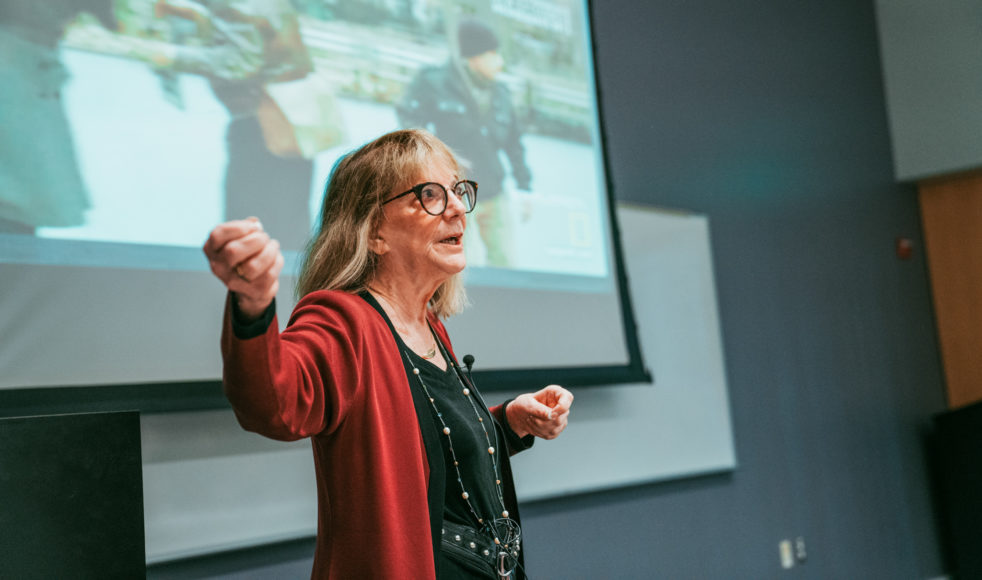On Thursday, Feb. 27, world-renowned cognitive psychologist Dr. Elizabeth Loftus made a visit to Tech’s campus to deliver a lecture in part of the Institute’s Frontiers in Science series.
Loftus’ work is studied in many basic introductory psychology courses, especially cognitive psychology classes, so it came as no surprise that the hall was overflowing with students, faculty and visitors alike who were all excited hear from the expert on human memory.
Much of Loftus’ research over the years has focused on memory and its different paradigms, popularly referenced in regards to eyewitness testimony and courtroom hearings. This specific lecture was titled “The Fiction of Memory” and covered the concepts of misinformation and false memories. On the very first slide Loftus presented, she posed the question “Can I make you remember?” prompting the audience to examine their own memories and the accuracy of them.
“Without memory, your relationships would mean nothing, not to mention your knowledge, case and your many adventures. It might be no exaggeration to say that your memories are the essence of you,” said Loftus. In an attempt to break down the value of memory, Loftus went on to explain all of the flaws that come with it.
One of the main paradigms for studying human memory that Loftus focused on was the “misinformation paradigm.” In Loftus’ study of this paradigm, she explains that “what happens in this kind of study is people see some kind of event, and maybe it’s a simulated crime like an accident … afterward, they’re going to get some post-event information about the event, often misinformation …” and that often alters one’s memories of an event.
She then went on to explain that not only can we misremember information, we can also completely construct new, false memories either ourselves or by letting others force them into our minds.
The most common example of this is seen in psychotherapy, which Loftus saw reflected heavily in many court cases she examined. “We began to see people going into therapy for 90 days who had one problem [like depression] … and they come out of this psychotherapy with a new problem. They start believing and remembering that they were molested for decades, perhaps they were forced they thought into satanic rituals where they were forced to kill animals and breed babies and kill those babies.”
After conducting further research into the creation of such “bizarre memories,” Loftus narrowed down the causes to the following factors: guided imagination, dream interpretation, hypnosis, exposure to false information, doctored photographs and more. However, at its core, the research all comes down to true memories versus false memories, yet there is no real method to distinguish between them.
“We came up with the idea which is now called the rich false memory paradigm where there’s not going to be any event to begin with [but people believe the memory exists anyways]”, explained Loftus.
In fact, in one study, people were put into an fMRI scanner and researchers found that the brain signals for false memory and true memory were so similar that they couldn’t tell much of a difference between the two. Despite our personal confidence that we experienced a certain event, “… emotion is no guarantee that we’re dealing with something authentic.” To end the lecture, Loftus shared her favorite quote: “The difference between false memories and true ones is the same as for jewels: it is always the false ones that look the. most real, the most brilliant” by Salvador Dalí.
“But Dalí didn’t quite get it right,” Loftus explains, “ … false ones can look equally real and equally brilliant.”
